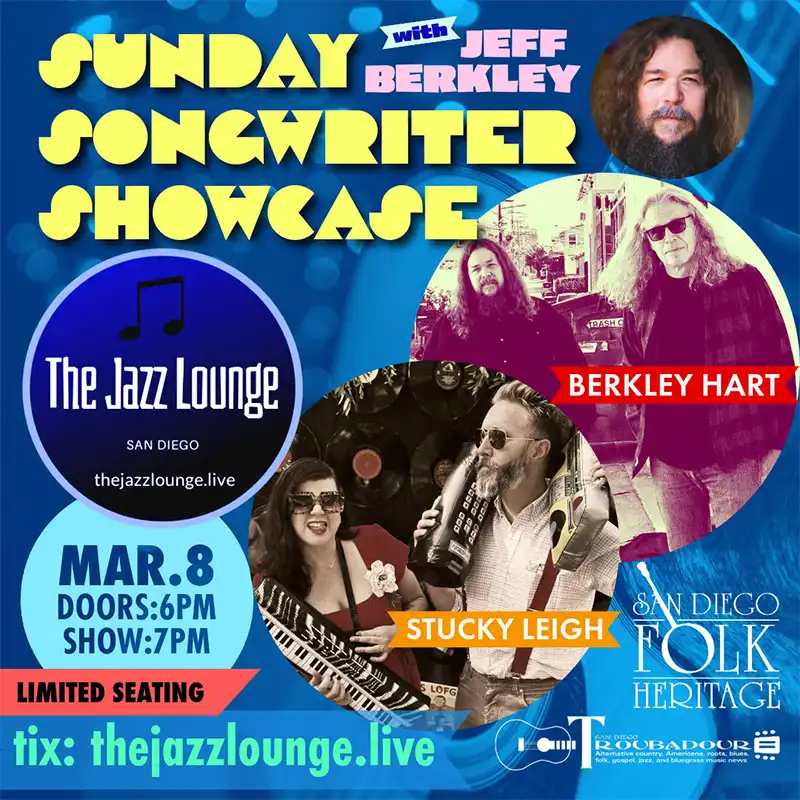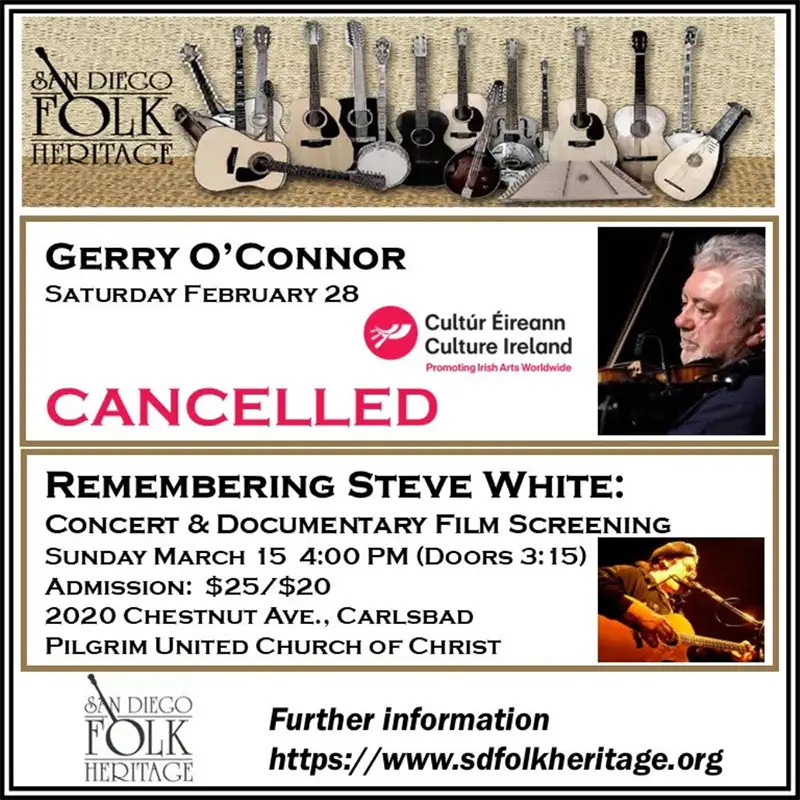Cover Story
Ashley E. Norton: Flight of the Songbird
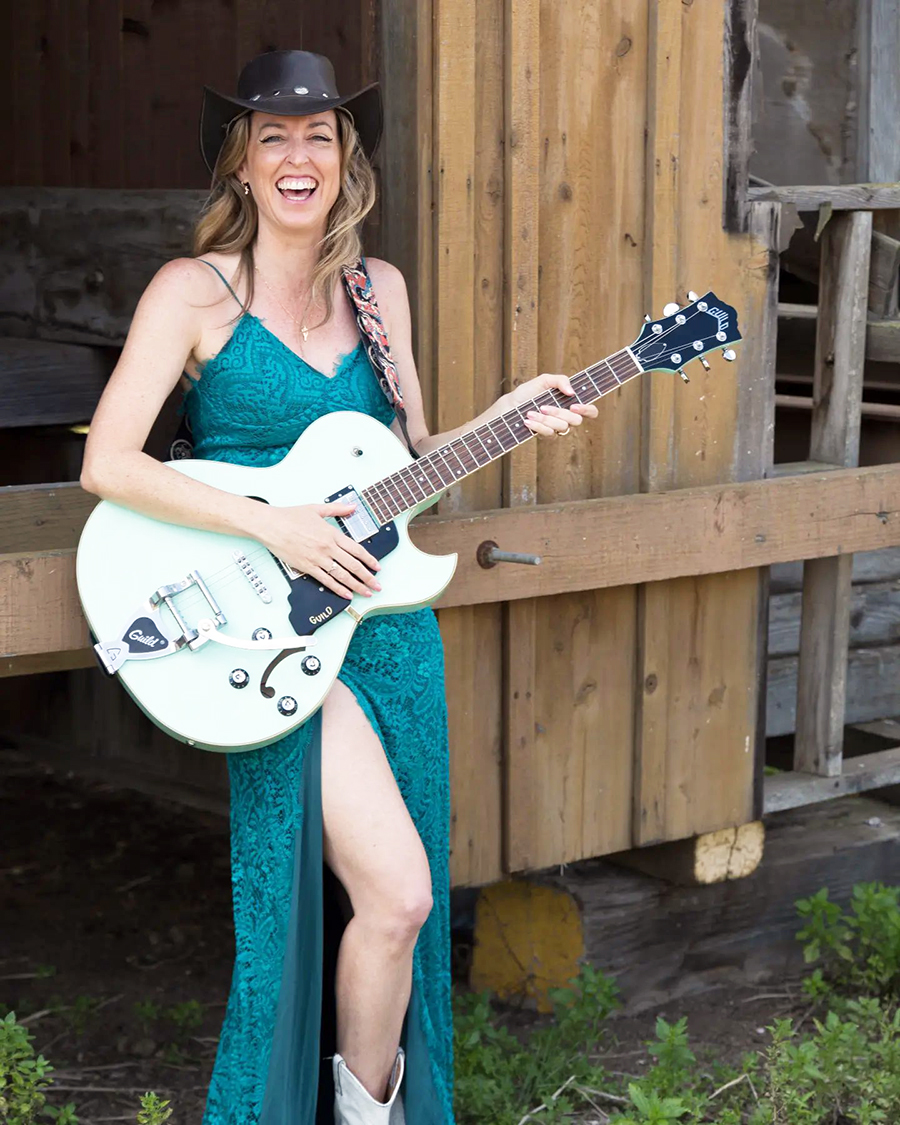
Ashley E. Norton
I am sitting across from Ashley E. Norton at a Coffee Bean in Carmel Mountain. She is joyous, she is happy to see me. She is brightly dressed and excited. She was there an hour early. If you know Ashley, this is what you get. Every. Single. Time.
The first time I met Ashley was at a songwriter’s round at Navajo Live. She was in the round with me, Joshua Taylor, and Josh Weinstein. I was in a time crunch that evening and wanted to get through the rounds quickly so I could pick up my son from the babysitter—but Ashley is a natural storyteller. “If there’s one thing about me,” she says. “I’m a talker!” Ashley was sharing a riveting story about full-time touring for six years, becoming sponsored by Subaru Europe, and currently being sponsored by Electro-Voice. She is in a band called Lady Psychiatrist’s Booth. What a band name! I was fascinated. Who was this woman? What is her deal? Where did she come from, and how has she not been in my orbit until now? Shortly afterward, I learned we had many mutual friends and I was invited to be a part of her popular Songbirds series. Needless to say, I was late for the babysitter that night and it was totally worth it.
Ashley E. Norton spent her childhood in the Boston area of Massachusetts before moving to Arizona when she was 11. Her earliest meaningful experience with music was in Arizona, probably around two or three years old. “Singing The Little Mermaid for my family. I’ll never forget, I was sitting in the kitchen, and I was singing the song and my parents were like, ‘Wait, what?!’ and they kept getting me to do it again and calling family members in and being like ‘You can really sing.’ So, I was like, ‘Okay!’ and that was that.”
Lauren Leigh/San Diego Troubadour: How did you go from singing “The Little Mermaid” in the kitchen to saying, “I want to do this. This is what I want to do.”
Ashley E. Norton: In middle school and high school I was very involved in choir. I was the quintessential choir chick; I did nothing else. I picked up a guitar at 14 because my mom and aunt took me to go buy a guitar because I loved singing so much. So [the guitar] felt like the next thing. I learned guitar but I was very, very insecure about it and I didn’t take to it like other people. It was still as if my voice was my thing. I started writing songs in high school, and I was like, “Okay now this is my thing.”
In her early 20s Norton started joining bands, but the most important a musical project for her was called Delcoa.
In Delcoa there was a bass player named Ethan Newman. He was my mentor first, then my boyfriend, then my fiancé, and then my friend. Unfortunately, he passed away in 2020 from Covid. He was/is very, very important to me. I met him when I was 20. I was in a bar playing pool. He pointed at me across the room and said, “I wanna hear YOU sing.” Y’know he was flirting with me! He didn’t know I could sing. So, I got up to this open mic and sang, and he was like, “Oh crap I didn’t know you could sing!” From then on we formed Delcoa with guitarist/co-lead singer Jay Allan.
Soon after these encounters and after a few shows together, a conversation occurred that would change the direction of Norton’s life.
Ashley: What do you do for a living?
Ethan: This is it.
Ashley: No, but what do you do for work?
Ethan: This is it.
Ashley: I didn’t know you could make a living playing music like this.
Ethan: Yeah, and you can, too!
Those three little words inspired her to follow his advice from then on. She credits him with being the main person who inspired her career.
I very much model my career after him. You need duos, solos, a band, songwriter nights? I got you. Let’s do this. I’m down for anything.
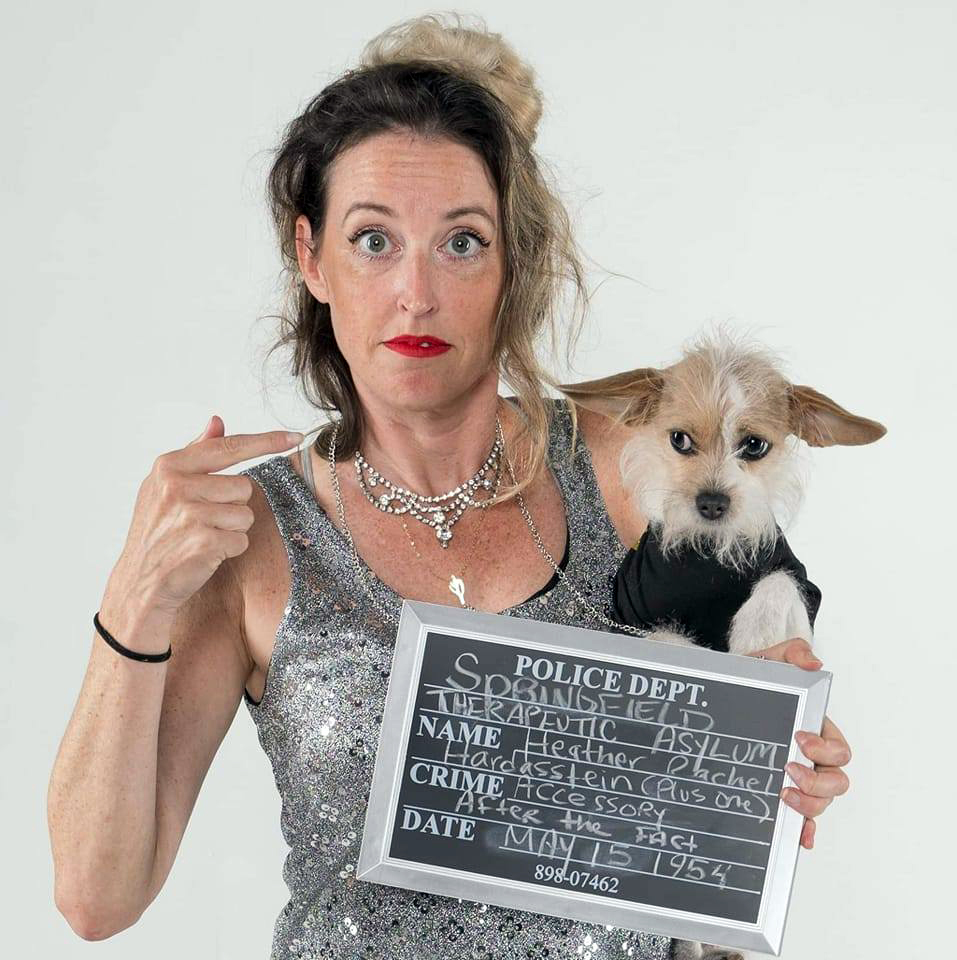
She started playing out with bands or as a duo mostly.
Until I realized there was a gig. I’ll never forget this moment. Some Irish bar called me saying, ‘We need women, we’re getting slack for not having women playing here” and I said, “Awesome! Thanks for calling me! What do you pay for a solo artist?” They said $200. “Okay, what do you pay for a duo?” And they said $200. So, I said, “Okay solo it is!” And I went home and learned all the three-chord songs I could. I wasn’t very good at first, but I kept doing it and I got better and suddenly I’m asking myself why I was so worried about playing guitar in the first place.
Cover gigs are what make up a bulk of Norton’s income, as is the case with most career musicians. Her perspective is refreshing in a world full of cover-jaded musicians who get bored playing the same old songs for half-interested folks.
I play covers with pride—music pays my bills and I’m happy to do it in whatever form it comes out. In a regular person’s life—normies? Do we call them that? In a normie’s life you have your day job and then you have your passion, but ours is sort of the same isn’t it?
She’s not wrong. The enmeshment can create a distaste for the “day job” of cover gigs and a lack of passion, but Norton never seems wanting. She tackles every challenge with enthusiasm and creativity. At 26, she moved to Nashville and used her ingenuity and work ethic to get around the exhausting cover scene most musicians are forced into in that city.
When I started, I supplemented my income as a dog walker. I didn’t do covers in Nashville; I hosted songwriter nights, which is how I made my living. I would do it two to three nights a week. People would hire me to book 12 acts a night, and that’s the story of how I didn’t have to sing a single country song on Broadway.
Norton didn’t stay more than four or five years in Nashville before growing tired of it.
I didn’t want to do the music machine anymore. Another label to sign me then crash and burn, another manager situation I didn’t want. I had a partner in a project called Witherward with Edward Williams. We wanted to leave, so we started touring in 2014 and we just didn’t stop until 2020. We got a Subaru Europe endorsement and that was just the biggest thing. We felt so cool. We flew to Brussels and met the president of the company. We were an Indie band, so it felt pretty amazing! We built a very well-oiled machine. We had our routes and our loops. We knew where we could stay. We had a lot of big support systems. But it was exhausting. We just didn’t know how to stop until 2020 came along and stopped us. Witherward spent six years on the road without a home base. I look back on it and I still can’t believe that we did that. I check in with Ed every now and then just to be like, “We did that, right?”
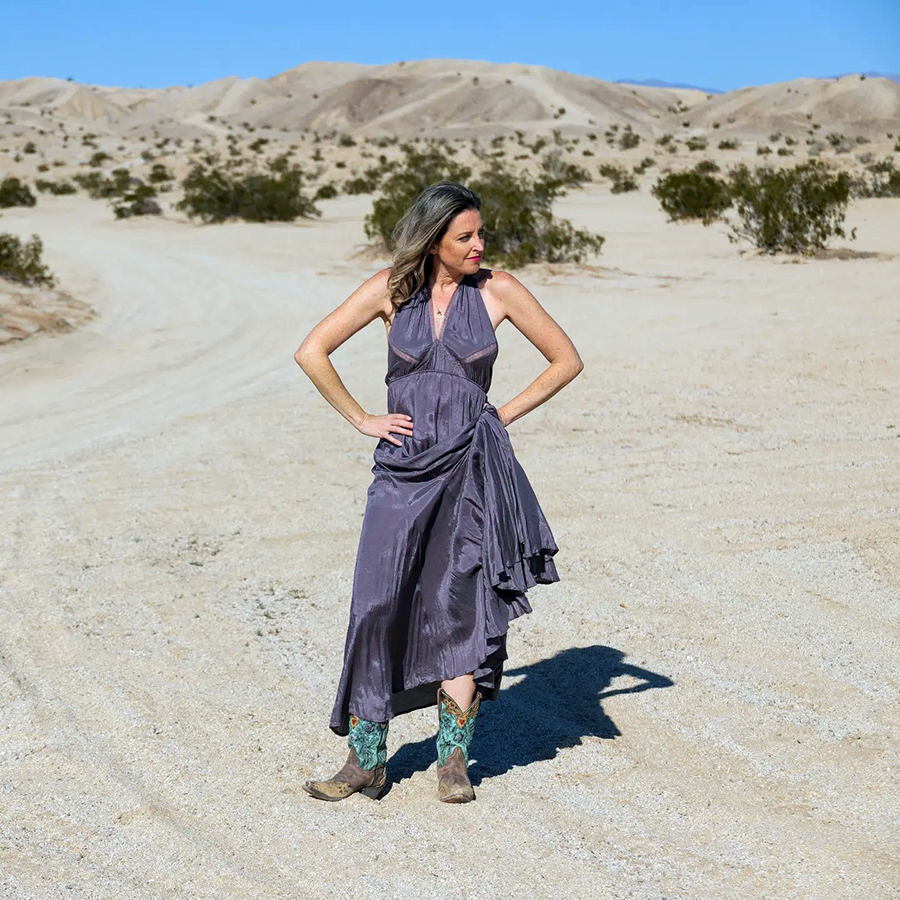
After touring nationally and internationally at an exhausting pace, Norton settled in San Diego. After living in a big music city like Nashville, Norton found San Diego’s sense of community and lack of scarcity mindset to be exactly what she needed.
San Diego is supportive and awesome. There’s room for everyone. I sort of moved here because of that. When Ed and I were touring, we had talked about putting roots down for years and were ready for our next things. We came to San Diego and met Tracy Smith, (RIP) and Cathryn Beeks and Randi Driscoll. I couldn’t believe all these cool people who were so welcoming. Cathryn would call Ed and me while we were on the road, and usually it’s like out of sight, out of mind, right? But these people cared. So, we decided to settle here, and I fell in love with a man and that was it.
Since moving to San Diego, Ashley has made a name for herself as a magnetic storyteller through her songwriting, as well as a champion for women in music. Most notably she’s the creator and host of Songbirds of Ramona Ranch, which features three accomplished female songwriters every first Friday at the Ramona Ranch Winery.
I’ve had the concept of the show since 2019. I had a tour planned called Songbirds of Nashville, and we were going to tour Europe. Lisa Sanders was one of the artists. We briefly took the show to New York and a tour up and down California before the lockdown. The short version of the story is that Teri at Ramona Ranch Winery got wind of the show and asked me to bring it there monthly. I started looking at the pathetic numbers of female songwriters on the Billboard charts. There are just as many female songwriters as there are men in this world so how come only 20 percent of them are represented in the Billboard charts? That doesn’t make any sense to me. I really don’t get it. So, I created this show to bring awareness to people who may not know about this problem and showcase some of the top talent I come across. We are about to celebrate two years strong. It’s still a really strong show. The audience understands how important it is to come back and bring different people. It’s a magical show and I wish I could do it forever.
Okay, so who would you love to collaborate with that you haven’t already, locally?
You, Lauren! Let’s write a song together!
I would love to.
Looking back on that interaction, I realize Ashley did what she does best and makes things happen when she’s given the opportunity. So let it be written. So let it be done.
Okay, okay, taking me off the table, who would you want to work with?
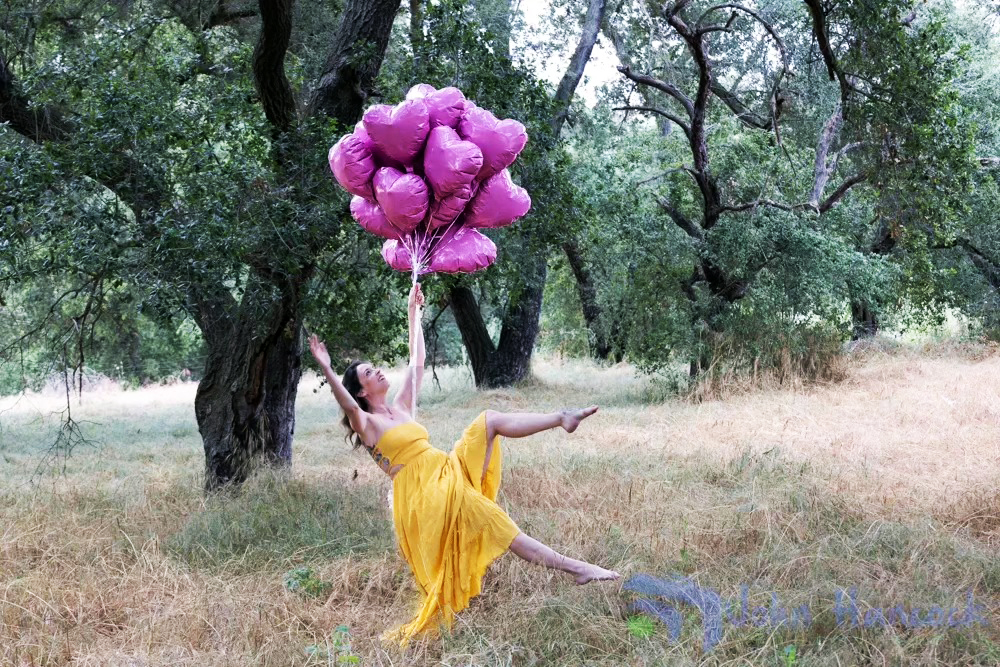
Her response really shouldn’t surprise anyone.
I really want to work with Jeff Berkley. I did the Writers’ Round a few months back and I don’t normally check my text messages, but Jeff had sent me one while I was performing, saying, “I should be doing your record!” and Ben Grace said that he got the same text message and shouted to Jeff, “Do you just say that to everyone?” and we all had a good laugh. I don’t think he sends that to people he doesn’t want to work with.
Norton finds that collaboration and co-writes aren’t as much of a thing on the West Coast as in other cities she’s lived in.
I’m getting a lot of Ramona artists on their first co-writes. I’m the perfect person to co-write with if you’ve never done it before. People come in to co-writes and they’re all scared about it and I’m like, “just trust me!” And they pull out their notes and trust me and it goes by really fast and they’re like, “Oh, okay! That was great!” This is what everyone did for me in Nashville.
Her songwriting process?
Lyrics first. I usually come up with a line or a few lines and come up with a melody for that, and then I’ll bring it to guitar and finish it.
From start to finish?
The longest it’s taken me to write a song is 10 years and the shortest is 20 minutes. I am a fast writer. Once the ideas start flowing it just goes.
With as much as Norton has on her plate, you’d think creative blocks would happen frequently. Not for her, she says.
I’ve dealt with burnout yes, but I have not had (I don’t want to say this out loud because watch it happen) but I haven’t had a block in a long time because I have a Patreon page. [patreon.com/ashleyenorton]. I write and record one song every week. I know how to get out of a block—just pull in a co-writer. I’ll call Troy and say, “Give me a melody.” There are ways out of it.
The Troy she is referring to is one of her favorite co-writers and producer of her latest single, “Wine Wine Wine.”
We did a lot of zoom writes. I’ll also pull in Johnny Garcia who produced the Lady Psychiatrist’s Booth album and my solo album that I have coming out, too, which no one knows about.
Yes, you heard it here first. Ashley E. Norton has a solo album coming out. Norton recently experienced the SDMA-nominated success of Lady Psychiatrist Booth’s concept album, Four Research Porpoises Only, a wacky and at times experimental Americana ride through four psychiatric patients’ various breakups. It seems Norton’s fans are ready for Ashley to record her more personal songs. Ashley casually mentions that Johnny Garcia plays for Garth Brooks and Trisha Yearwood.
He’s all right.” [she says with a wink] I was like ‘Can you please play all over this album?’
Lady Psychiatrist’s Booth live in Oceanside.
So, here’s a question every musician loves to hate. How would you describe your solo sound? What kind of music is it?
I have two answers. When I’m showing up to a winery, let’s say, and people ask what kind of music do you play? I say, ‘Something for everybody.’ But I love, love, love Americana music. If you look up the definition of Americana, it’s country, rock, blues, gospel, and also none of those things. There’s nothing better than that. I wrote a song on my solo album called “Americana to Me.” It talks about how this is Americana music and I’m a proud Americana musician and my music can’t be put in a box. I write country, I write folk, I write rock, and I write none of these things. So that’s my world—it’s an all-accepting world, musically and in life.
In addition, Ashley has exciting releases on the horizon. Her most recent co-write is with Ramona local and SDMA-nominated artist Thea the Band. Their upcoming single, “Hitchhike to Heaven” (due to be released September 1), is inspired by a woman in Ramona who died at 100 years old.
I got to sing with her on her 100th birthday. Her caretaker related to us that close to when she died, she said, ‘If Jesus doesn’t take me soon, I’m going to hitchhike to Heaven!’ We knew it had to be a song. We recorded with Jon Hasz and Travis MacKenzie filmed the music video at Cheers in Ramona.
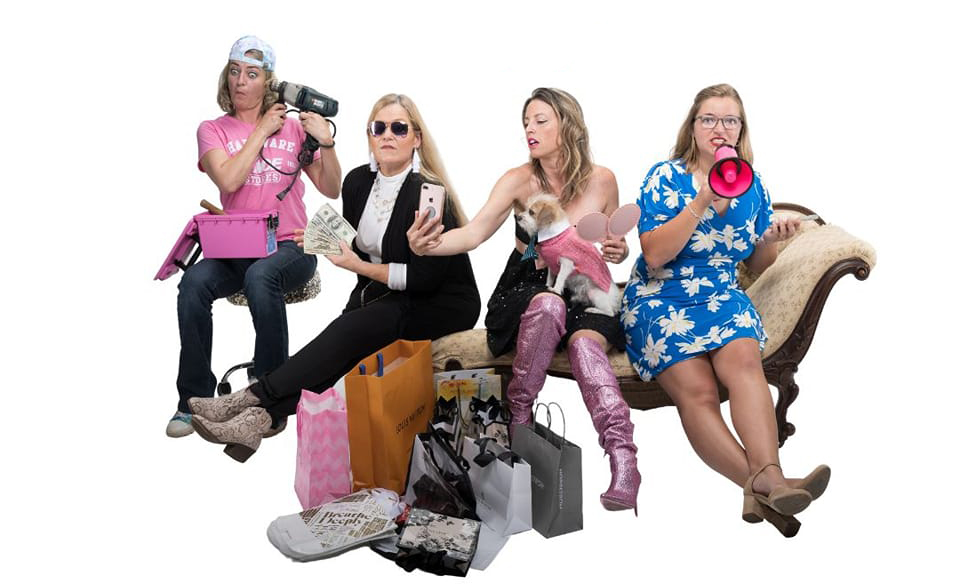
Lady Psychiatrist’s Booth. (L-R) Stephanie Groot, Marcia Claire, Ashley E. Norton, Amanda Albini.
It’s not surprising that half of Ramona showed up to be extras in the music video. Ashley had loads to say about the little town up the mountains.
This town has my heart! My husband and I moved here by accident in 2020 and when the world started opening up again, I realized how lucky I was. It’s incredible to be part of this boom. Michael Raher with the Ramona Home Journal graciously put me on the cover, and I started getting a lot of credit for putting the scene together. I don’t know if that’s accurate or not. Ramona had a thriving music scene for many years before I got here. But what’s happening now? I’m just thrilled to be part of it. RosaLea [Schiavone] once called us Little Austin, which seems to be taking off and I love that! I love Ramona…if you’re here, you know.
So, you and I both know that there are very difficult things about this industry, especially as women. What do you find to be the most difficult thing about being a musician?
Quite a few things come to mind immediately.
What’s the first thing that comes to mind?
Maintaining normal relationships. I think that relationships look very different for us because we gain brothers and sisters and family members possibly deeper than any other career path. It’s hard for people to understand how hard we fall in love with our bandmates and our collaborators. I think that’s hard for our actual family and husbands and wives and kids to totally comprehend. I’m so lucky that my husband does. I wouldn’t have married anyone else. Then there’s the other side of it: when those special musical relationships break apart sometimes, it’s just so earth shattering. But we get to have these relationships with people that not everyone gets.
It’s apparent to me at this point in the interview that human connection is at the center of everything Ashley does. She may say her passion is music, but from this point of view, music allows her to be a vessel of connectivity. Music is how she bridges the gaps among people from various backgrounds, ages, genders, and genres. I asked her what inspires her the most and, once again, people and relationships are at the very center of her response.
This may not be why everyone does it, but the audience inspires me more than anything. It’s the energy exchange. Sometimes that’s not there when we play, and that’s when it becomes a job. But watching people smile, bringing joy and music to other people, and getting to see it. We are in such a unique perspective up on stage. We get to see everything. People have no idea what we get to see. So, yeah, the audience inspires me. When something goes well, and people come up to me and say, ‘This was an incredible experience’ or they’re laughing their ass off because of something I said in the microphone, there’s nothing that fuels my fire more.
I want to talk about your views on the music industry and as someone who, from the outside, appears successful. Could you talk about what “success” in the industry looks like for you right now?
First of all, I’m glad you put “success” in quotation marks because it’s all relative, right? What does success mean? A lot of people look at me and say, “I wanna be successful like you!” and I’m like, “Oh my God, I want to be successful like Ingrid Michaelson!” What we are working with is that it used to be that you made albums and that’s how you made your money. Now albums aren’t doing anything. And to me now, it’s as if albums are here to support you. It’s almost like your soapbox, right? It’s your resume, it’s your sound, it’s what’s gonna get the gig booked. I have not figured out how to make a living outside of live performance. There are little things we do, like Patreon, but the bulk of our money comes from live performances. What if we get sick? What if we lose our voice? What if there’s a worldwide pandemic? We aren’t making money anymore, and our whole world crashes down. So, it’s scary, but at the same time it’s cool to be a part of this enlightened period that’s happening right now. Everyone is making albums. We are all working on bettering each other. I’ve noticed even in our greater San Diego circle, everyone’s getting better! It’s crazy and so cool to watch. So, what’s working against us is that the main thing we have to go off of is performance. But we are all pushing venues and bookers to pay us more collectively. We haven’t had a raise as musicians in probably 100 years and we deserve it.
After our interview, I followed up with several people who know Ashley and work with her frequently. Her passion for human connection is proved even further by what her mutuals have to say about her.
It’s not often you find talented people that also care so much about the community! We are so proud and lucky to have her in Ramona! —Jon Hasz, musician, producer, and owner of Ramona Music Center.
Cathryn Beeks, curator and host of Listen Local Show—and a name synonymous with local music in San Diego—was happy to talk about Norton’s impact on her. I met Ashley a decade or more ago when she was traveling through town with her duo, Witherward. I was an instant fan. She’s just one of those special people who emit positivity and joy, and she’s happy to share it. I am so glad she’s now my neighbor and a BFF for life!
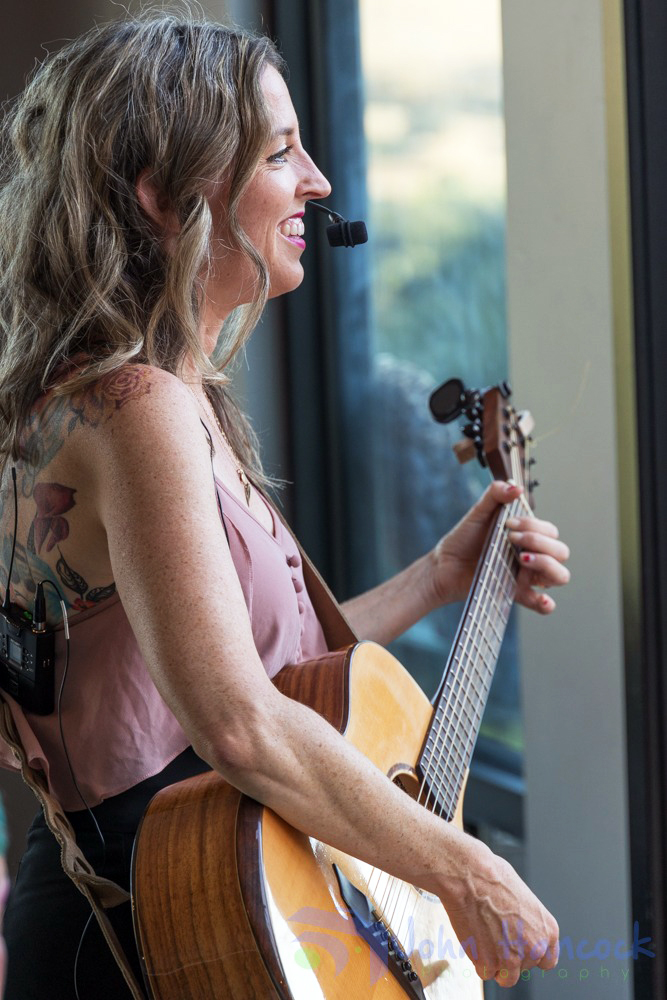
Chloe Lou, a SDMA winner who also recently moved to Ramona has first-hand experience of how Ashley’s personal connections have affected her. Ashley blows me away with her ability to foster community and bring people together with music. I love that she uses her prolific songwriting skills to write both heartfelt, tear-wrenching songs but also comes up with hilarious concepts and executes them to perfection. She’s a thoughtful friend and has taught me a lot about the music business in the short months I’ve known her.
John Hancock, a beloved local photographer and long-time collaborator with Norton, summed up what makes her so special. I met Ashley for the first time at a photoshoot. We immediately hit it off and became good friends. Not only is she a talented musician, she is very supportive of other musicians as well, especially female artists. If she’s not performing at her own show, you will more than likely find her at someone else’s.
What’s the best piece of advice you’ve been given that you’d like to pass on to someone who might want to be a songwriter or to have a career like yours?
YOU CAN TOO. That’s what Ethan said to me 20 years ago and I did it. I don’t know who “You” is, but you can. If you just follow the people that have the success you want, find something within reach to go for, and figure out how they did it and do those things. Also, learn an instrument. If you don’t think you can, you can too!





